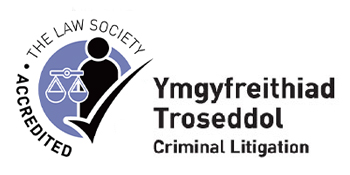STRAIN
A'I GWMNI
AND COMPANY
14A Stryd Penlan, Pwllheli, Gwynedd

Rape prosecutions.(Saesneg yn Unig)

Dyddiad: 2021-12-20
The Law Commission has announced that it has announced a project to review how evidence is used in rape prosecutions to counter rape myths.
The Law Commission is the statutory independent body created by the Law Commissions Act 1965 to keep the law under review and recommend appropriate reform. The Commission aims to make sure the law is fair, modern, simple and cost-effective.
The project is part of the government’s rape review, and it aims to:
- increase understanding of consent and sexual harm;
- improve the treatment of victims;
- ensure defendants receive a fair trial.
In particular, the Commission will be considering and reviewing four areas:
- Sexual history - the Commission will review whether there is a need for the reform of the provisions governing the restriction of questioning on a complainant’s sexual history.
- Medical records - a review will take place of the rules in relation to using the complainant’s medical and counselling records during a trial.
- Rape myths - consideration of how law and guidance could counter juror’s misconceptions about sexual harm; the so-called rape myths regarding credibility, behaviour and experience of complainants and defendants.
- Special measures - the availability of special measures will be reviewed to protect complainants during the trial. Special measures are alternative arrangements for giving evidence.
The Rape Review partly concerns the low conviction rates for rape and serious sexual offences. Victims may be deterred from reporting offences, or supporting a prosecution, if they are scared about going to court. The Law Commissioner for Criminal Law said, “our project will consider how to improve the trial process to address ‘rape myths’, admit ony relevant evidence and better protect complainants whilst ensuring a fair trial for defendants.”
The government asked the Law Commission to carry out this project due to the decline in conviction rates even though the prevalence of the offending has remained steady. The Law Commission has other projects that also aim to increase protections against violence and abuse of females. The projects include recommendations to extend the offences of stirring up hatred to cover stirring up hatred on the grounds of sex or gender; protection against cyber flashing and rape threats; and an ongoing project on intimate image abuse and the making and taking of intimate images without consent.
Misconceptions
Misconceptions, or rape myths, include the reasons why victims may delay reporting, differing behaviours after an assault and the relevance of a lack of resistance or injury.
Use of evidence
A complainant’s sexual history can only be admitted in limited circumstances. The Commission will review the provision to ensure only relevant evidence is admissible at trial. It will also consider whether the test for allowing the release of a complainant’s medical and counselling records is stringent enough. Also under consideration is the risk that a jury gives too much weight to this information and reach a conclusion based on a misconception.
Special measures
Special measures are adaptations that can be made in trial proceedings to help a witness give the best evidence they can. In sexual assault cases, the protections given to witnesses may make it easier to give their evidence. The Commission will look at whether the provisions could be reformed to prevent the quality of the evidence from being diminished by the experience of giving the evidence.
The Commission will publish a short background paper on the need for reform and the issues. A consultation paper will follow containing the provisional proposals in the summer of 2022. At the conclusion of the consultation, a final set of recommendations will be published in 2023.
How can we help?
We ensure we keep up to date with any changes in legislation and case law so that we are always best placed to advise you properly. If you would like to discuss any aspect of your case, please contact Carys Parry on 01758 455 500 or office@strainandco.co.uk
[Image credit © Crown Copyright ]
Yn ôl i'r prif dudalen blog.
Mae Ein Arbenigedd yn Cynnwys:
> Anaf Personol
> Cyfraith Teulu
> Trosedd
> Ymgyfreitha Cyffredinol
Gwybodaeth Defnyddiol
> Ariannu a Costau
> Cysylltiadau a Gwybodaeth Pellach
> Cydnabyddiaeth a Cymhwysterau
> Geirda
Cysylltwch â Ni
Cyfeiriad: 14A Stryd Penlan, Pwllheli, Gwynedd
Ffôn: 01758 455500
E-bost: office@strainandco.co.uk

© 2025 Strain a'i Gwmni. Rheolir ac Awdurdodir gan yr SRA rhif 644052. Cedwir Pob Hawl. Rhybudd Preifatrwydd.
Gwefan gan Delwedd.